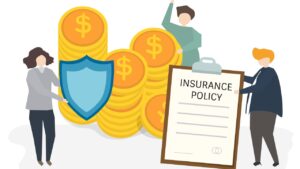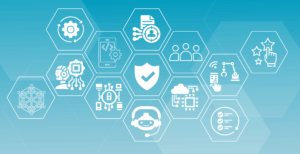In a world increasingly defined by complexity, from shifting employment landscapes to intricate investment vehicles, one skill stands as the undisputed bedrock of long-term success and peace of mind: financial literacy. More than just understanding how to balance a checkbook—a skill itself fading in the digital age—financial literacy is the mastery of principles that govern your wealth. It is the ability to make informed, effective decisions about the use and management of your money, a skill set that has the profound power to transform your future from one of anxiety and reaction to one of confidence and proactive growth.
This is not a theoretical exercise; it is a practical roadmap to freedom.
The Cost of Ignorance: Why Financial Literacy is Non-Negotiable
Before exploring the benefits, it is crucial to understand the high price of financial illiteracy. Lacking foundational money management skills can lead to a host of debilitating issues:
- Excessive Debt: Without understanding interest rates, compound interest, and debt consolidation strategies, individuals often fall into high-interest traps, turning a manageable loan into a life-long burden.
- Lost Opportunity: A lack of knowledge about investing, retirement accounts, or simply the power of saving means missing out on decades of compounded growth—the single most potent engine for wealth creation.
- Financial Stress: Money worries are a leading cause of stress, impacting mental health, physical well-being, and personal relationships. Ignorance does not breed bliss; it creates perpetual anxiety about the future.
- Vulnerability to Scams: Financially illiterate individuals are far more susceptible to predatory lending and sophisticated financial scams, as they lack the foundational knowledge to spot red flags.
In essence, financial illiteracy means forfeiting control over your life, allowing your money—or lack thereof—to dictate your choices.
The Pillars of Transformation: The Benefits of Financial Mastery
Financial literacy is a multi-faceted skill set that builds on itself. Mastering its core components provides a scaffold for a secure and prosperous life.
1. The Power of Proactive Budgeting and Cash Flow Management
At its core, financial literacy begins with the basics: knowing where your money comes from and, more importantly, where it goes.
- Mindful Spending: A budget is not a restriction; it’s a map. By meticulously tracking income and expenses, you move from reactive spending (buying what you want) to mindful spending (buying what you value). This clarity immediately frees up resources that were previously wasted.
- Eliminating ‘Financial Leaks’: Understanding your cash flow helps you identify and plug the “leaks”—small, recurring expenditures that siphon away significant wealth over time, such as unused subscriptions or excessive fees.
The outcome is a positive cash flow that you can direct toward saving and investment, not just covering bills.
2. Mastering Debt for Strategic Advantage
The financially literate do not view all debt equally. They understand the crucial difference between “good debt” (low-interest, appreciating assets like a mortgage or an investment in education) and “bad debt” (high-interest, depreciating liabilities like credit card debt).
- Strategic Repayment: Knowledge equips you with strategies like the Debt Snowball or Debt Avalanche methods, allowing you to pay off high-interest loans faster and more efficiently, saving thousands in interest payments.
- Credit Score Leverage: Understanding how your credit score is calculated empowers you to manage it effectively. A strong credit score translates into lower interest rates on loans for homes and cars, potentially saving you tens of thousands of dollars over a lifetime. This is a direct, measurable return on your financial education.
3. Securing Your Present: Building a Fortress of Safety
Life is unpredictable. Financial literacy dictates that your first investment should be in a safety net.
- Emergency Fund: Knowing the importance of an emergency fund—typically 3-6 months of living expenses—provides an indispensable buffer against unexpected job loss, medical crises, or car repairs. For the financially literate, an unexpected expense is an inconvenience, not a catastrophe.
- Insurance Savvy: Understanding different types of insurance (life, health, disability, property) and their role allows you to effectively transfer risk, protecting your assets and your future income without overpaying for unnecessary coverage.
4. Engineering Your Future: The Compound Interest Engine
The most transformative aspect of financial literacy is the knowledge of investing and the magic of compound interest.
- The Early Start Advantage: A financially literate person understands that time, not just money, is their most valuable asset. Starting to invest early, even with small amounts, allows the investment returns to generate their own returns, creating exponential growth. The difference between starting at age 25 and age 35 can literally be hundreds of thousands of dollars by retirement.
- Demystifying Investments: Financial education pulls back the curtain on the stock market, mutual funds, ETFs, and retirement accounts like 401(k)s and IRAs. It replaces fear with confidence, allowing you to create a diversified portfolio that aligns with your risk tolerance and long-term goals. You stop guessing and start executing a plan.
- Retirement Readiness: You learn to quantify your retirement needs and systematically work backward. You understand tax-advantaged accounts and how to maximize employer matches, effectively accepting ‘free money’ that financially illiterate individuals often leave on the table.
A Lifelong Journey of Empowerment
Financial literacy is not a destination but a continuous, evolving process. The modern financial world constantly introduces new products, technologies, and challenges. To remain in control, you must commit to lifelong learning:
- Read Reputable Sources: Consume books, blogs, and articles from trusted financial experts.
- Utilize Free Resources: Take advantage of free online courses, educational videos, and government-sponsored financial education programs.
- Seek Advice, but Maintain Control: Consult with fee-only financial advisors for guidance, but retain the knowledge to understand and scrutinize their advice. Never outsource your judgment.
Conclusion: Taking the Reins of Your Destiny
In the final analysis, financial literacy is empowerment. It is the crucial skill that transforms abstract dreams—like owning a home, starting a business, or retiring comfortably—into concrete, achievable goals.
By choosing to educate yourself, you move from being a passenger in your financial life to becoming the captain of your destiny. You reduce stress, build resilience, unlock wealth-generating opportunities, and, most importantly, create a future that is defined by your choices, not by your constraints. The transformation begins today with a single decision: to learn, to plan, and to take full, confident control of your money.



